The end of the year is often a time for reviewing the math learned throughout the year, whether to prepare for state tests, final exams or cumulative projects, or just to fill the days after testing is done. However, I have come to see how important it is to review all year long and not just wait until the end.
My first year teaching, my students seemed very receptive to my lessons, seemed to grasp the concepts, and did well on the tests I gave them after each chapter. However, I was surprised and disappointed in the standardized test scores of some of my best students. I realized that the problem was that once we finished a chapter and moved on to the next chapter, they never saw the material from that first chapter again and so by the time standardized tests came around they had forgotten some of the things that they used to know really well. I learned from that experience and have since incorporated various ways to keep the math fresh throughout the year:
- I know different teachers have different opinions on calculator usage, but my personal feeling is that once students prove that they can do something by hand, I allow them to use calculators so that they aren’t spending too much time on the computational aspect of a complex problem. However, I don’t want them to forget how to do problems by hand, so once a week I give them a “no calculator review” in place of my traditional “do now” questions. They usually cover topics like fraction, decimal, integer, & rational number operations. (You can read more about my No Calculator Reviews in this post).
- After each chapter test, I give my students a cumulative review that I count as a quiz grade. It covers things from all previous units that we covered. Students know that the cumulative quiz is coming so they know that they can’t just forget the material after they learn it. Sometimes I allow students to use their notes for the cumulative quiz or give it as a take-home quiz, but most of the time I give it as a traditional quiz. Not only does this encourage students to (hopefully) retain the math they are learning, but it shows me if there are particular concepts that a lot of students seem to have forgotten that I may need to revisit.
- This is, in my opinion, the most important strategy. I give my students problems and ask them questions that require them to use skills learned previously in the year. It is so important for students to see connections between the different units they learn, so any time I can incorporate an “old” skill/concept into a “new” one is a win in my book! Here’s an example of a task card I made for a lesson on finding the area & perimeter of irregular figures that requires students to use previously learned skills:
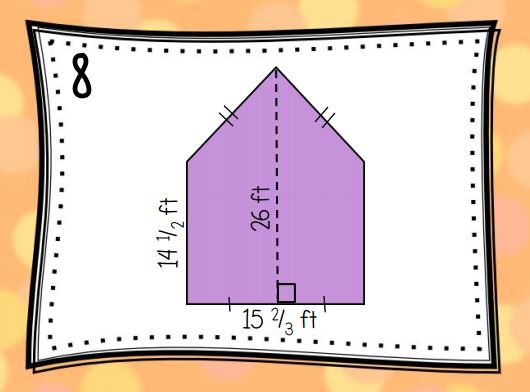
To find the perimeter students need to use the Pythagorean Theorem and to find the area & perimeter students need to perform operations with mixed numbers, so this one problem reinforces a couple of different skills learned throughout the year. Giving students lots of problems like this makes it virtually impossible for them to forget the math they learned earlier in the year since they are constantly using it.
I hope this gave you some ideas for helping students keep the math fresh! If you are looking for ways to keep it fresh over summer break or just need a good end of year review packet, I have math review packets for students going from 5th to 6th grade, 6th to 7th grade, 7th to 8th grade, and pre-algebra to algebra I in my tpt store for $4 each. Each packet contains detailed explanations of how to do the various types of problems, worked-out examples (showing each step), and 100 practice problems. Click the pictures below for more information on each packet.
Thanks for reading,
Christina

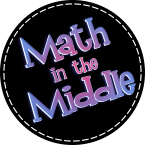
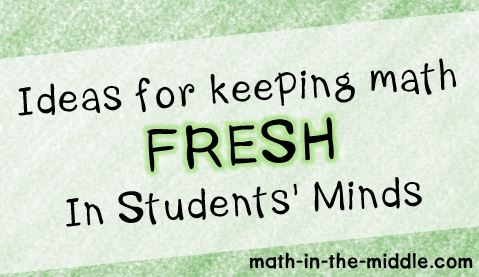
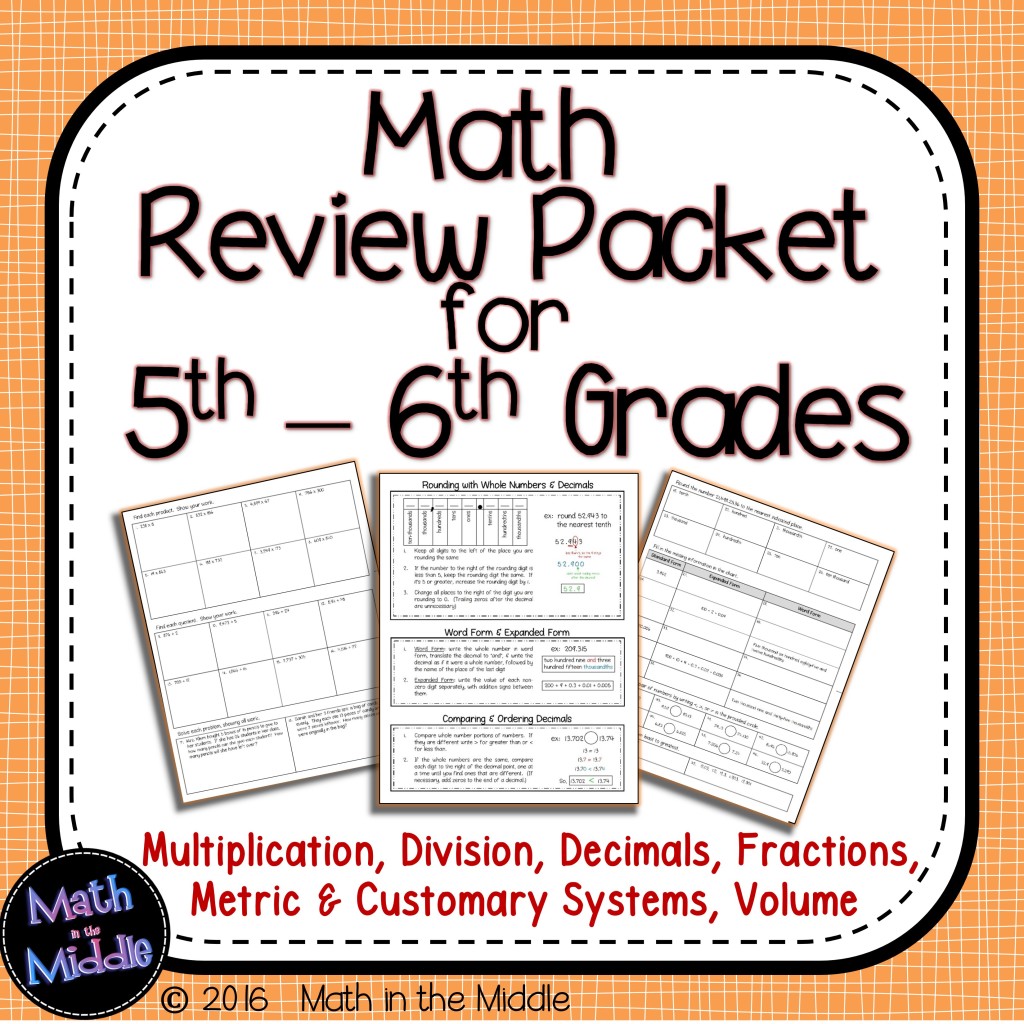
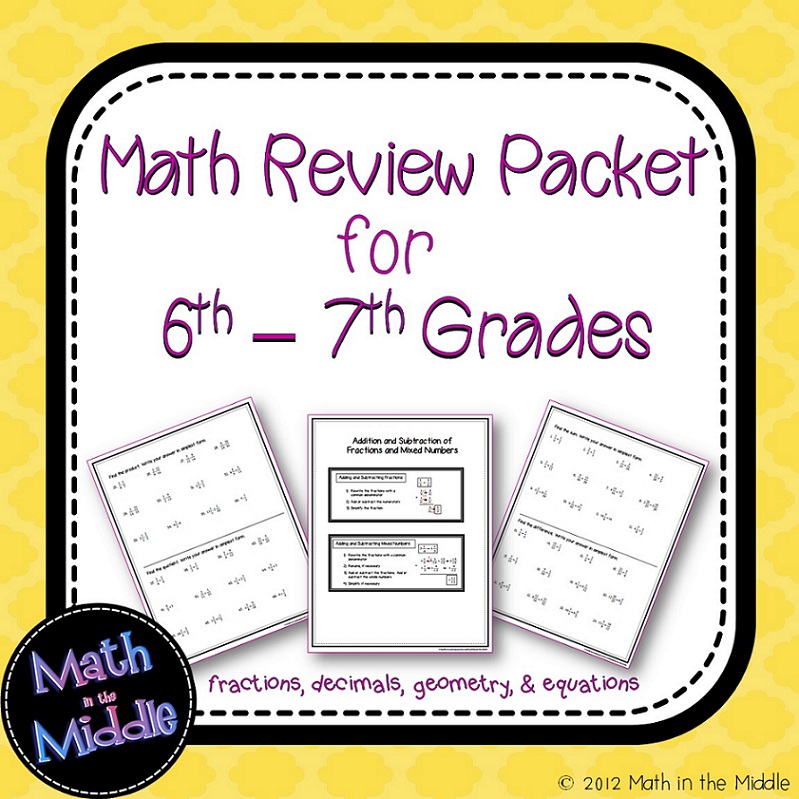
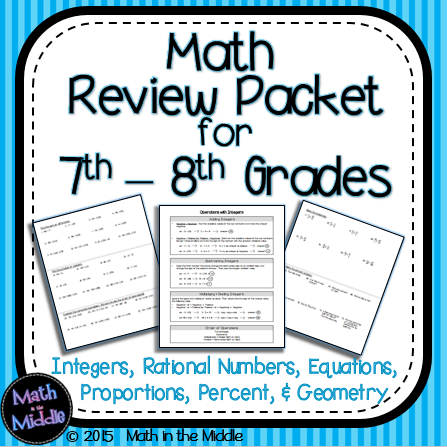
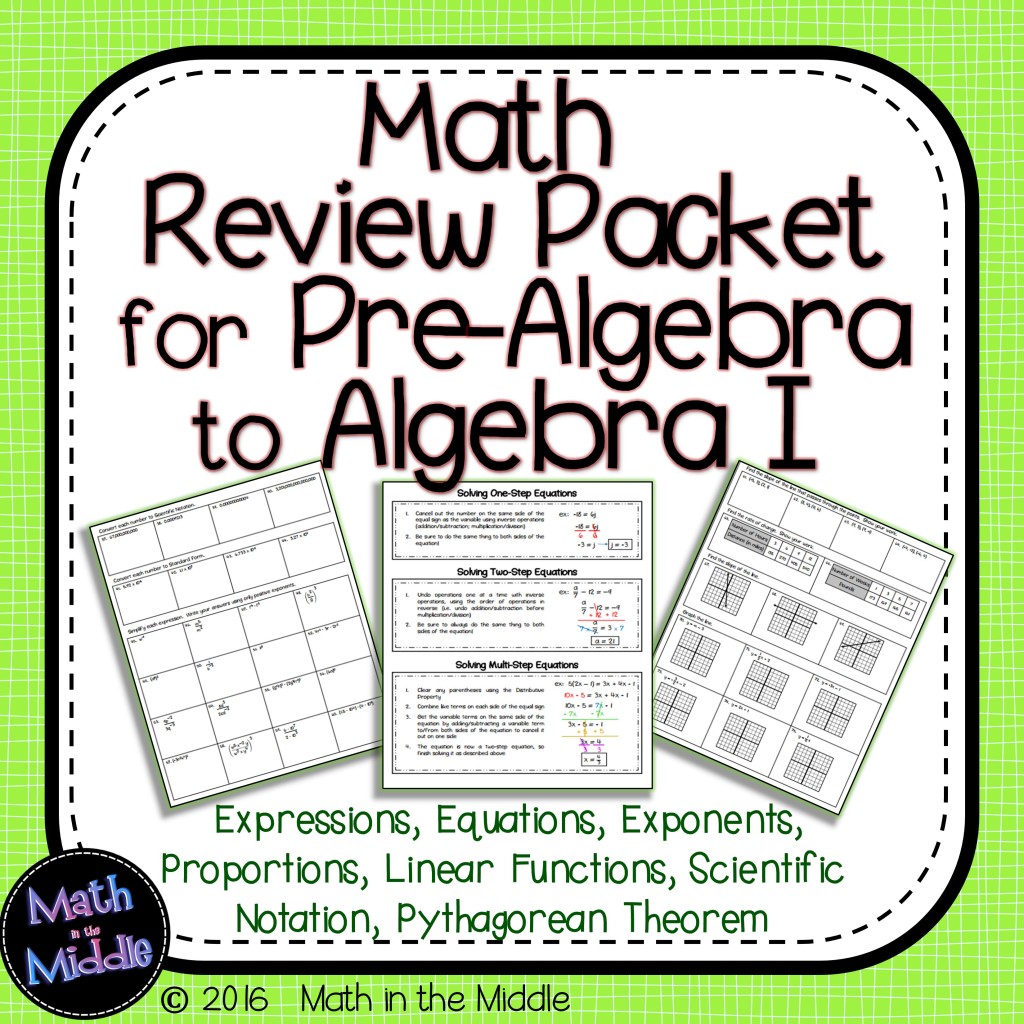

To keep topics fresh in their minds, I also use Khan Academy (going to try front row this year instead). I create a class for the students in each of my classes and you are able to recommend certain topics for all, or one student in particular, to practice. I personally loved using this for early finishers. They were allowed to work on it at home if they wanted to. But to have them actually work on it there was an incentive of course. Every 5% increase from marking period to marking period was an extra 100 homework and if the student increased 25% they got an extra 100% quiz grade.
Example: student earn a 7% at the end of mp1. That student gets 1 100% hw added to end mp grade. Student then earns a 35% at end of mp2. That’s a 28% increase so the student gets a 100% quiz score added to end of mp grade.
The teacher I was in for actually made the 8th grade geometry class a requirement to finish the 8th grade Khan academy. They were graded each marking period as a quiz grade based on how much they increased out of 25%.
That sounds like a great idea! I really like the incentives you built into it, too. Since my classes are 1:1 I think I might try using a site like Khan Academy this year as a way of spiraling skills, and like you said, for early finishers.
Thanks for sharing!
– Christina